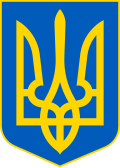Popular vote
Regular presidential elections are held on the last Sunday of March [10] (formerly in October) of the fifth and last year of the incumbent President's term of office. If a president's term in office ends prematurely, the election of a new president must take place within ninety days of the president's office falling vacant. [11] [12]
The president is elected by direct popular vote in a two-round majoritarian contest. [13] If no candidate receives a simple majority (over 50%) of votes in the first round, the two candidates with the most votes advance to a run-off, [14] which is called for the third Sunday after the first round; [15] the candidate who receives more votes in the run-off is then elected president. [16]
If one of the two remaining candidates drops out at least 12 days before the run-off, the next-best candidate from the first round will advance into the second round instead. [17] If there is only one candidate left in the second round (e.g. if a candidate withdraws less than 12 days before the second round, or if there are no other candidates who can replace a candidate who has withdrawn), [18] the remaining candidate must win over 50% of the second-round vote to be elected president, or the election will be declared void. [19]
Voters must be Ukrainian citizens and at least 18 years old on the election day. [20]
There are no requirements for a minimum voter turnout. [21]
Until the 2010 election, Ukrainian voters had the option to vote "against all candidates"; however, this option was removed [22] in 2011 after changes to electoral legislation. [23]
